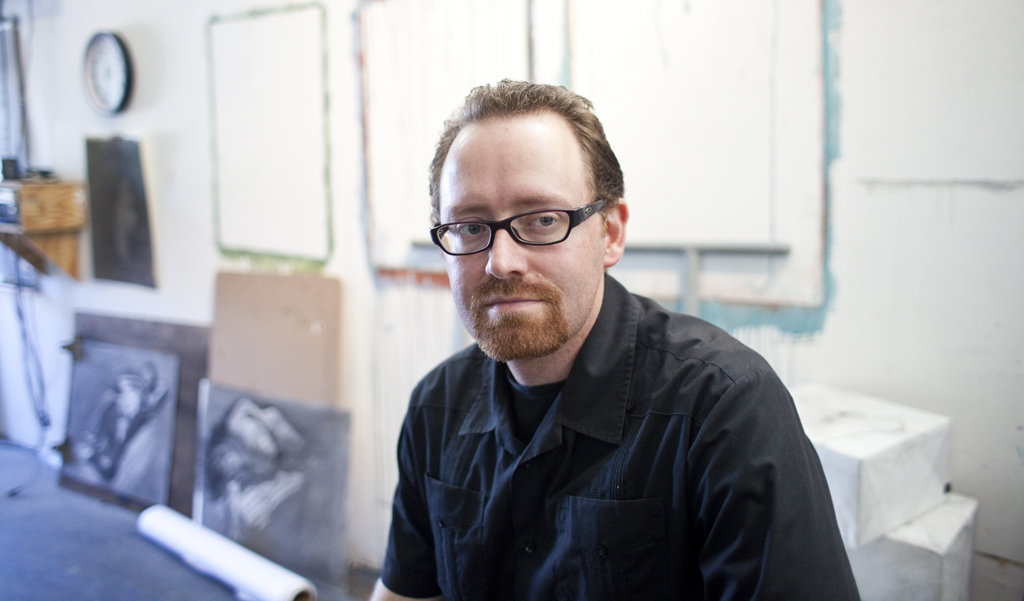Photography by Hannah Caprara
Written by Kahlie Cowell
Dorothy Barr remembers a time in her life when she questioned herself. Her childhood was spent growing up on an isolated farm lost amidst the plains of Wisconsin. Following the death of her husband, Barr’s mother struggled to make ends meet. For Barr, this made affording college impossible. As the youngest of her siblings and unable to attend college, she never regarded herself as unique. Later in life, after she married and had kids of her own, Barr’s struggles with self-doubt began to manifest themselves.
“When my husband and I moved, I knew no one in the new area,” Barr recalls. “The people I met started asking me questions about myself, like where did I go to college. But I never went to college! And suddenly I started questioning my accomplishments.”
The effect others have on our own self-esteem
For many of us, Barr’s experiences are entirely relatable. People impact us in a number of significant ways. One of these is in the way we see ourselves.
As Dr. Nancy Yuen, professor of sociology at Biola University, puts it, “Self-esteem is never isolated from others.” Whether it is individuals we personally interact with, the media or culture in general, Yuen states that how we perceive ourselves can never fully be separated from other people. They affect our self-image. Everyday, consciously or unconsciously, we allow the words and actions of others to either build us up or tear us down.
“We are not impenetrable. Positive experiences can serve to raise our self-esteem, whereas negative experiences can serve to lower it, leaving us feeling unworthy,” remarks Dr. Elisa Shepard, professor of social psychology at Biola University.
This was the case for Dorothy Barr when she moved home and encountered the disconcerting questions posed by her new neighbors. It was their inquiries that caused her to question her accomplishments.
Many of us regularly interpret the actions or words of other people in such a way that makes us doubt ourselves. Yuen points out that people purposely size us up and judge us as different than them. In either case, our self-esteem is often affected.
Shepard describes self-esteem as the overall way a person perceives their worth or value; a perception, as Yuen pointed out, that is often influenced by other people. We naturally want people to like us, and if we receive any indication, intended or not, that this is not the case, we often question our value and feel inadequate.
Fluctuating self-esteem
Agreeing with Yuen’s and Shepherd’s assessments, Mind.org describes self-esteem as “not static and fixed; your beliefs about yourself can change throughout your life as a result of circumstance and experience.” The positive or negative experiences we have with other people can either raise or lower our self-esteem.
Brandon Wetmore, a junior theater major, has experienced this first-hand, noticing that his self-esteem tends to fluctuate based on certain factors.
“My self-esteem can be a roller coaster of ups and downs, particularly when I base my self-esteem on what others say about me and what they think about me, and what I think of myself,” Wetmore says. “It’s usually based on something that’s not that important and these identities that I give myself, based on what I’m doing and how well I’m doing it and the people I’m surrounded by. And these are the things that really aren’t strong enough to provide me with a self-esteem that is legit.”
The world is full of things that can and do impact how we see ourselves. Yet as Christians, we know that it is God’s opinion of us that should dictate how we perceive ourselves, rather than the opinions of those around us. Nevertheless, many of us still struggle with judging ourselves according to the views of others. If our self-esteem is something that is being constantly affected and changed, it raises the question: is self-esteem something that can ever be completely fixed?
Redirecting our focus
If you search “self-esteem” on the Internet, several websites pop up offering numerous suggestions and tips for improving self-esteem. However, if our self-esteem is something that constantly changes due to our experiences, then it would seem that these tips are nothing more than temporary fixes. If self-esteem is incapable of being permanently improved, then perhaps there is another angle from which we need to approach this topic. Perhaps a change of focus is what is actually required.
Tessa Vallotton, a junior sociology major, remembers a time in high school when her confidence depended on personal pep talks and other people’s compliments.
“It was very shallow things I was basing my self-esteem off of,” Vallotton says. In reflecting on these things, she remarks, “Some of them may have been true, but I latched on to those so much so that those became my confidence and my self-worth.”
However, upon coming to Biola, Vallotton realized that the things she had relied on to define her self-esteem were not concrete. “I thought I was a confident person. But when I came to Biola, I realized everything I had built my confidence on was unstable and that I needed to find my confidence in God.”
The answer is not high self-esteem
There is no question that the Bible supports human worth. The cross speaks of God’s unimaginable love for all of creation. In light of this, He would not want us to cheapen our value by questioning it. Perhaps the answer to people’s struggles with their worth is not found in trying to improve their self-esteem.
In his sermon “Blessed Are the Poor in Spirit Who Mourn,” John Piper addresses self-esteem by drawing from the example of Moses, who lacked confidence in his ability to speak to Pharaoh.
“The biblical answer to the paralysis of low self-esteem is not high self-esteem,” Piper states, “it is sovereign grace. In other words, God’s way of freeing and mobilizing people who see themselves as worms is not to tell them that they are beautiful butterflies but rather to say, ‘I will help you. I am your redeemer… Go to Egypt now, and I will be with you.’”
As was the case for Moses, the answer to our struggle does not lie in achieving high self-esteem. In fact, the answer does not lie with us at all. According to Piper, any value we have comes from God, which means any hope of us understanding and believing that value must come from Him as well.
As Piper pinpointed, Christians struggling with their worth need to remember they have the authority of God on their side. Instead of trying to improve their self-esteem, Christians should focus on living out God’s truth instead — this includes replacing their worries about the opinions of others with concern for the needs of other people.
Recent shift to self
The term self-esteem is a relatively new word in pop culture today; just two generations ago, this phrase was not regularly used. Mary Higden, 81, states that she had never heard of self-esteem until her daughter was 14. Barr agrees, stating that self-esteem was never a word used when she was young, nor was it a concept that was emphasized.
As a child, Higden learned that her concern should not be for herself but for other people. Comparing this past outlook to today’s, she notices there has been a new shift in focus from others to self.
When considering our culture’s emphasis on improving self-esteem, Higden thinks of Philippians 2:3-4, which urges believers to serve the needs of others rather than just their own. She believes that many people’s struggles with self-esteem would be improved if they learned to focus less on themselves and more on others.
Dealing with the cause is crucial
However, both Shepard and Yuen express concern that exclusively focusing on others may prevent those struggling from low self-esteem from ever discovering the root cause of their feelings. Shepard warns that we cannot improve low self-esteem by jumping too quickly into trying to be a good Christian.
“Until you identify those things in the past that contribute to low self-esteem,” Shepherd says, “you can’t move onto the truth.”
Yuen agrees, stating, “That real hurt and pain is not something that you can just move on from. It’s hard to love and accept God’s love until we are healed of our wounds.” Both Yuen and Shepard advise talking out self-esteem struggles with trusted individuals, like a close friend, a therapist or a community of supporters.
“We can’t stop being affected by hurtful things,” Shepard observes, “but we can change the way we interpret those moments.”
She argues that speaking out about negative experiences teaches us to reinterpret them in positive ways. In doing so, we acknowledge the hurt and pain, but return to a place of understanding who we truly are in Christ.
Capture our thoughts, find a balance
Speaking out fulfills the biblical mandate found in 2 Corinthians 10:5, urging us to take captive our thoughts to Christ. Thoughts concerning our lack of worth ignore the value Christ assigned us when He died on the cross. Speaking openly with a trusted individual provides the opportunity we need to reevaluate our experiences, and allows us to realign those with the truth in Scripture. In this way we capture our thoughts and make them obedient to Christ, allowing Him to shed His light on us and heal us.
Ultimately, a balance must be found between this self-awareness and the innate selfishness of constantly worrying about what others think of us. There are certainly some people whose painful pasts and experiences must be acknowledged and worked through. Others need to simply let go of trying to please everyone.
We have an innate belief that people around us are always paying attention to us — thinking about us, assessing us and judging us. According to Dr. Shepard, psychologists refer to this idea as the “looking-glass self” — the assumption that the spotlight is always on us. We behave according to this assumption; it affects how we dress, act and speak.
Vallotton has come a long way from relying on the compliments of others to boost her confidence. As a resident advisor (RA), she has learned that there is freedom in caring for others without obsessing about yourself.
“One of the biggest ways I have grown in my self-esteem and become a more confident person has been being an RA,” says Vallotton. “I think it’s because it’s my job to care about other people. And so I don’t have time to worry about myself and I don’t have time to think about what I look like or if I am a good enough person.”
Christ is the answer
We must understand our propensity to assume others pay more attention to us than they really do, and train ourselves not to live our lives based on assumed projections of what others are thinking. By concerning ourselves less with others and more with God’s Word, perhaps we will inadvertently chip away at this problem of self-esteem.
Barr has since learned this in her long walk with God, and she states contentedly, “As Christians, our self-worth is in knowing Christ and sharing Him with others. My self-esteem is in the Lord. I don’t desire more.”





